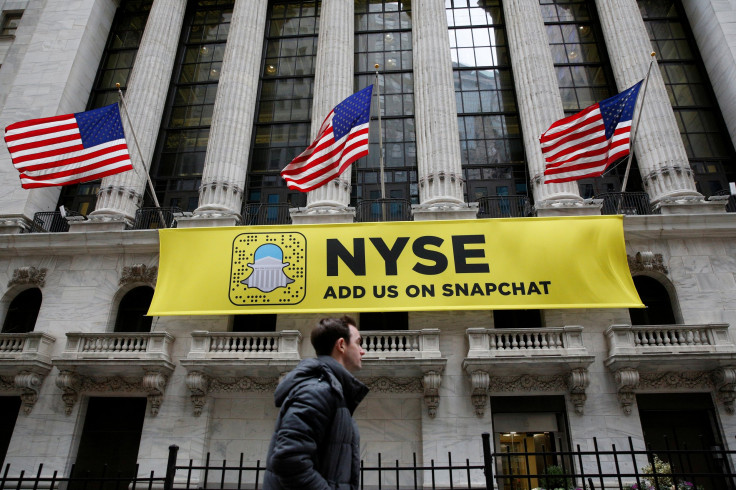Future Of Snapchat? Shares Of Snap Inc Down 12% Less Than A Week After IPO

Shares of Snap Inc. (SNAP), the parent of video and image messaging app Snapchat, dropped as much as 12 percent on its fifth day of trading, closing at $21.45 Tuesday afternoon.
The trading day capped off a steady three-day, nearly 30 percent decline in the Venice, California-based company’s share price, from a high of $29.44 late Friday morning.
The dollar figure was still well above the company’s March 1 initial public offering of 200 million shares at $17 apiece, with an estimated value of $24 billion. But it also closed a bit below the Thursday opening price of close to $24.50.
Many investment research groups urged traders to sell shares of Snap, whose daily user growth suffered in the wake of cases of blatant copying by other social network and communications apps. The Facebook Inc.-owned Instagram, for example, deployed “Stories,” visual status posts that last for 24 hours, in August. WhatsApp, another Facebook subsidiary, did the same in February. Perhaps even more worrisome, Snapchat’s total number of users was, as of the fourth quarter of 2016, just 8 million above the 150 million Instagram users posting “Stories,” according to analysis from the market research firm Forrester Research.
Even more worrisome, Snapchat’s total number of users was, as of the fourth quarter of 2016, just 8 million above the 150 million Instagram users posting “Stories,” according to analysis from the market research firm Forrester Research. Facebook, by comparison, had 1.86 billion by the end of last year, and Twitter boasted 319 million.
Snap saw its user growth slow toward the end of 2016, a year in which it not only failed to make a profit, but saw its net losses expand by just fewer than 40 percent, to $514.6 million.
Aside from factors that may turn away advertisers, the shares offered at Snap’s IPO held no voting rights, making them unattractive to long-term investors as well. In concentrating voting power among its top leadership and a private share class, Snap may be able to avoid disclosure requirements related to executive pay and other elements of corporate governance, something the Securities and Exchange Commission began looking into soon after the IPO launch.
Correction: An earlier version of this article incorrectly compared Snapchat's daily active users to Twitter's and Facebook's monthly active users.
© Copyright IBTimes 2024. All rights reserved.





















